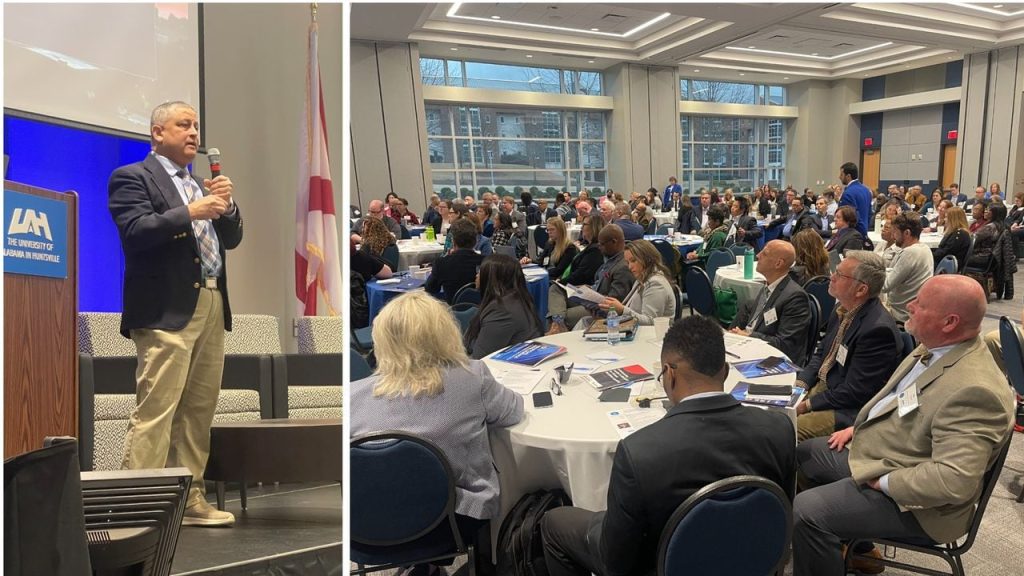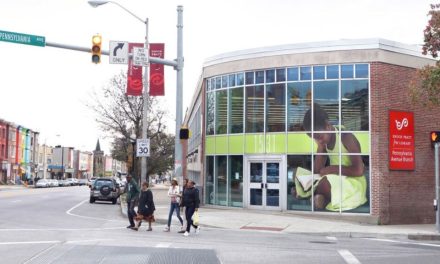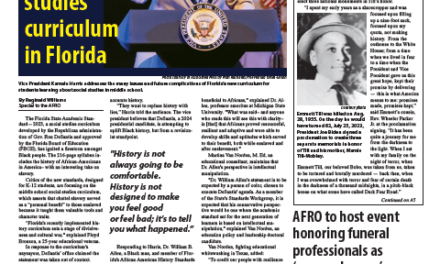by Kayode Crown
Artificial intelligence may not come directly to your work, but people who know how to use it will. That’s the message about 200 people heard Friday in Huntsville at a conference on how universities can integrate artificial intelligence into education.
Ravi Pendse, vice president of information technology at the University of Michigan, was the keynote speaker during the conference held at the University of Alabama in Huntsville on Friday.
“Generative AI, in my humble opinion, will be an incredibly impactful technology in this century,” he said. “It is going to be a force for positive disruption. I truly believe that, frankly, it will be as transformative as the Internet has been.”
Pendse told the crowd that they must prioritize AI in the classroom, as those who are not familiar with how to use it could be left behind in the workforce or even out of a job.
“…it’s not going to be AI that’s going to take your job, it’s someone who actually knows these tools, someone who knows that Gen AI is going to take your job,” he said. “So as educators, it’s important for us to make sure that we learn from the amazing students that we educate, that we emphasize to them and make sure that they understand these tools. Make sure they are familiar with these tools.”
Two members of Alabama Gov. Kay Ivey’s new artificial intelligence task force were in the crowd at the conference.Professors Matthew Hudnall (left) and N. Hari Harayanan are members of Governor Kay Ivey’s artificial intelligence task force.
“There are issues with technology, whether ethical, biased or potential errors, that you have to be careful about,” said Auburn University professor N. Hari Harayanan, a member of the governor’s task force.
The task force, which focuses on how state government can and should use AI, includes seven members of the governor’s Cabinet, four lawmakers and two professors: Harayanan, chair of the Department of Computer Science and Software Engineering at Auburn, and Matthew Hudnall. the president of the faculty senate of the University of Alabama.
“Ultimately, the danger to avoid is over-reliance on AI, but care must be taken when using it to improve office efficiency and productivity,” Harayanan said. “But humans should be involved all the time. “We are not talking about replacing anyone at all.”
Hudnall, who teaches computer science, said the task force is looking at how AI can save the government money.
“I think we can gain a lot from AI to reduce costs and optimize the services we have,” he said. “So I think it’s our inherent responsibility to look for ways to use it to save costs and optimize resources.”
Carolyn Garrity, associate professor of marketing and president of the University of Montevallo College of Business, said attending the conference was beneficial.Carolyn Garrity, associate professor of marketing at the University of Montevallo and president of the College of Business.
“It’s a very important issue and we need to consider how we’re going to address it and how we’re going to prepare our students for the future,” he told AL.com.
Pendse explained that the University of Michigan, in collaboration with Open AI and Microsoft, will make generative AI personal assistants available to each of the university’s 50,000 students.
“So starting next fall at the University of Michigan, when our students come back in the fall with the typical email address that they receive, every student will have a personal AI assistant for them,” he said.
AI’s personal assistant, UM GPT, will answer questions about the school. With a focus on privacy, it will be free for students and will have accessibility features for the visually impaired.
“We wanted to make sure our model supported screen readers, and it does,” he said. “So visually impaired people can also use it.”
They are also working on a tool that will help with scholarship applications.
“The prototype is already working. We hope to release it to the nation for free to use and for everyone to use,” he said.
The deployment of a separate proprietary generative AI platform, UM Maizey, has helped improve grading at the institution and shorten the time faculty spend on administrative tasks.
“We have many faculty members who have taken Maizey and allowed it to ingest and index (remember this is a private environment), all of their lectures, their class notes, it integrates with our learning management system so they can just point it out and Overnight learn everything.”
“And they have repositioned Maizey as a 24/7 tutor for her classes,” she said. “Faculty members have complete control; they can implement it however they want; They can only turn it on at night; “This is not to replace tutors or TAs (teaching assistants).”
“More importantly, it saved the faculty members who implemented it 10 to 12 office hours each week, and allowed them to spend more time with struggling students rather than answering mundane questions.”











